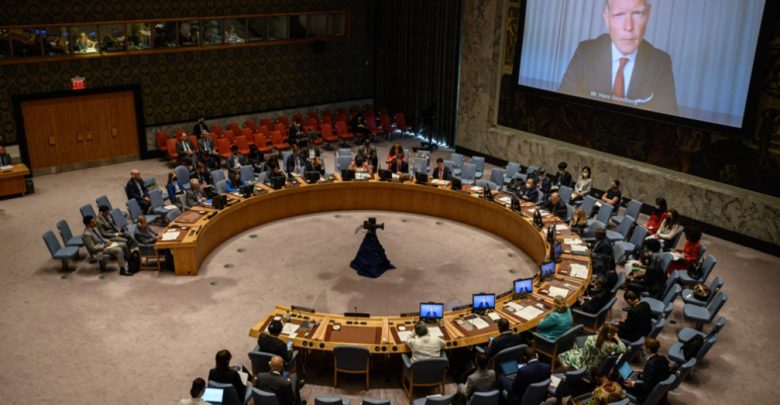Although communications between Sanaa and Riyadh have not been completely closed during the past years, the concerns of the forces loyal to the Saudi-Emirati “coalition” have recently escalated, regarding any possible direct negotiations between the Ansar Allah movement and the Saudi side. Over the past days, these forces have leaked information indicating that there is a Saudi tendency to negotiate with the Sanaa leadership in isolation from the other Yemeni parties. More than one source reported the arrival of a high-ranking Saudi delegation to the Yemeni capital, to discuss secretly with “Ansar Allah” about expanding the truce, taking steps to consolidate the ceasefire, and speeding up the implementation of humanitarian and economic understandings.
These leaks, which Sanaa neither denied nor confirmed, came one day after the end of a tour of the US envoy to Yemen, Tim Lenderking, which included Jordan, the UAE, Saudi Arabia and the Sultanate of Oman, during which he discussed ways to establish the armistice, and conveyed Washington's fears of any setbacks in light of the failure of the United Nations. The current agreed-upon armistice includes new provisions, such as opening more roads, paying state employees’ salaries, opening new destinations for commercial flights departing from Sana’a Airport, and facilitating the movement of ships coming to the port of Hodeidah.
According to diplomatic sources who spoke to Al-Akhbar, Washington, London and Paris are already pressing toward ending the monetary and financial division between Sanaa and Aden. Undeclared consultations have taken place under the auspices of the office of the UN envoy to Yemen, Hans Grundberg, in the Jordanian capital, Amman, which resulted in a preliminary agreement on the need to unify monetary and fiscal policies.
The sources pointed out that the discussions were limited to the salaries of civil servants. Against this background, the sources of the forces loyal to the “coalition” criticized the pressures faced by the “Presidential Council” government in Aden regarding the payment of salaries, and considered what is happening “like a Gulf coup against the Council,” as the latter still links any talk of employees’ salaries to the opening of roads in Taiz.
For their part, political sources in Sanaa attributed the recent American movement to the renewed openness between Moscow and Sana'a, which raises "Washington's fears of a Russian role that might mix cards in Yemen." Lenderking had announced, during his last tour, his country's aspiration to cooperate with Russia in this country, reviewing what he described as "the common denominators" to find a settlement there. These American statements came after the spokesman for Ansar Allah, the head of its negotiating delegation, Mohammed Abdulsalam, threatened in an interview on the sidelines of his visit to the Russian capital, Moscow last week, to refrain from agreeing to extend the armistice, “unless urgent treatments occur, including the payment of salaries.” Abdulsalam noted that there is a Russian understanding of the situation in Yemen, while the head of the Supreme Political Council in Sana'a, Mahdi Al-Mashat, spoke of "changes in international attitudes for the benefit of the Yemeni people," he said.







